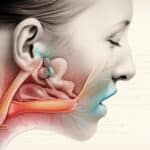Beyond the Buzz: Calcium’s Surprising Influence on Tinnitus Symptoms
- Get link
- X
- Other Apps
Introduction
Have you ever heard a mysterious ringing in your ears that doesn’t seem to come from any external source? Yeah, you’re not alone. Roughly 15-20% of people have encountered this phenomenon, a condition known as tinnitus. But did you know that this ear discomfort can be linked to calcium levels in the body? Let’s dive into calcium tinnitus, a fascinating aspect of this common but little-understood condition.
What is Calcium Tinnitus?
Calcium tinnitus is a specific form of tinnitus where changes in calcium levels dramatically impact the occurrence and severity of the ailment. This constant ear-ringing can result from calcium deficiency, fluctuations in calcium regulation, or conditions impacting calcium metabolism in the body.
With a wide-ranging scope encompassing several tinnitus types, understanding calcium tinnitus can be your first step towards finding effective relief and improving your quality of life.
Relation Between Calcium and Tinnitus
As it turns out, calcium plays a crucial role in transmitting signals in nerve cells and muscle contraction. Now, you might be wondering, how does this relate to tinnitus? Well, when calcium levels in the body are misbalanced, nerve cells can send scrambled signals to your brain, one of which is the phantom ringing or buzzing in the ear – the hallmark symptom of tinnitus.
Moreover, calcium is involved in the hair cell function of our inner ear, which is fundamental for our ability to hear. Thus, any disruption in calcium levels could lead to disturbances in normal hearing function, such as tinnitus sensations.
Calcium Deficiency and Tinnitus
But it’s not just calcium imbalance that can cause this ear-ringing. Even not having enough calcium – a condition known as hypocalcemia – can lead to tinnitus. Symptoms of calcium deficiency often include fatigue, muscle cramps and, you guessed it, tinnitus.
Why does this happen? Well, when you don’t have enough calcium in your bloodstream, your body starts to pull calcium from your bones to compensate. This can have a host of side effects, among which are bone weakness, osteoporosis, and in severe cases, tinnitus.
While calcium deficiency is not the most common cause of tinnitus, it’s useful to remember that our bodies are a complex network where one aspect can impact others in surprising ways. A holistic approach toward health will always take this interconnected nature into account. And if you’re dealing with tinnitus, understanding, and managing calcium levels might be part of the puzzle.
Symptoms of Calcium Tinnitus
So what does calcium tinnitus actually feel like? The most apparent symptom is a persistent or intermittent ringing, buzzing, hissing, humming, or roaring sound in one or both ears. It’s like having an unwelcome guest who overstays their welcome.
Alongside this phantom noise, you might also experience a sense of aural fullness or pressure in the ears, difficulty hearing external sounds clearly, or even occasional dizziness. It’s also common to find that these symptoms intensify during quiet moments, like when trying to fall asleep or when you’re away from the hustle and bustle of everyday noise.
Causes of Calcium Tinnitus
Calcium tinnitus can be caused by a variety of factors, so identifying the exact reason can be a bit of a detective game. Primary suspects include long-term exposure to loud noise, the aging process that leads to changes in the bones of your inner ear, and, of course, calcium imbalance or deficiency.
But it doesn’t stop there. Did you know that certain medications, including some antibiotics and anti-inflammatory drugs, can also give rise to tinnitus? And yes, these culprits can actually destabilize your calcium levels, leading to dreaded calcium tinnitus.
There are other potential underlying causes too, such as Meniere’s disease, Otosclerosis, or even high blood pressure! You might want to read more about other possible causes of calcium tinnitus here.
Diagnosis of Calcium Tinnitus
Diagnosing calcium tinnitus usually involves a careful medical history review, physical examination, and specialized audiological tests. Your doctor will most likely ask about your dietary habits, lifestyle, and exposure to both loud noises and specific medications known to impact calcium levels.
You might also have to take a blood test to check your calcium levels and rule out other medical conditions. In some cases, imaging tests like MRI or CT scans may be necessary. A full hearing exam can also reveal whether you have any hearing loss and to what degree. For more insights into how tinnitus is diagnosed, check out this comprehensive guide.
Remember, whenever you’re in doubt, it’s best to consult a healthcare professional who can guide you through the necessary steps toward diagnosis and treatment.
Treatment for Calcium Tinnitus
So, you’ve been diagnosed with calcium tinnitus, what’s next? Well, it’s time for the good news – though it might not be fully curable, calcium tinnitus is certainly treatable! Various treatment approaches can help you manage the symptoms and improve your quality of life.
Medications may provide some relief, while sound therapy can help distract from the constant ringing. If calcium deficiency is detected, a simple supplement could be a game-changer. If your tinnitus sprung from certain medications, your healthcare provider might adjust your dose or switch you to a different drug.
Your doctor may also propose devices like white noise machines or “tinnitus maskers.” These gadgets generate pleasant sounds to counteract the inner ear noise, akin to drowning out a pesky mosquito with a fan. Want to dig into more options for treating calcium tinnitus?
Natural Remedies for Calcium Tinnitus
Getting back to basics is often a smart move. Nature provides us with an abundance of resources to support our health, and treating calcium tinnitus is no exception.
Increase calcium intake through your diet. Foods like leafy greens, dairy products, nuts and seeds, and fortified foods can help. Natural Remedies like Ginkgo Biloba, used across centuries, could offer hope. The same holds true for alternative mind-body practices such as acupuncture, hypnosis, EMDR, and CBT – options worth exploring within your comfort and belief system.
Additionally, Supplements such as magnesium, zinc, B vitamins, and certain antioxidants have been proposed as positive players in combating tinnitus. Remember, always chat with a healthcare provider before starting any new supplement.
Lifestyle Changes to Manage Calcium Tinnitus
Let’s not overlook the impact of our everyday choices. A healthy lifestyle can work wonders in managing tinnitus symptoms, improving overall well-being, and aiding the effectiveness of medical treatments.
Regular exercise can bolster your overall health and resilience, including dealing with tinnitus. Commit to quality sleep – sleep deprivation tends to amplify tinnitus symptoms. Aim for a balanced, nutrient-rich diet, and drink alcohol responsibly – excess alcohol can exacerbate tinnitus.
Listening to soothing sounds or music could work as a distraction, helping you cope better. And finally, stress management is key. Techniques like mindfulness, meditation, yoga, or simply hanging out with loved ones can keep stress at bay. For more insights on Lifestyle changes to manage tinnitus, look no further!
Remember, each person’s tinnitus journey is unique. What works for someone else might not work for you – and that’s okay. Explore, experiment, and find what helps you live your happiest, healthiest life.
Impact of Calcium Tinnitus on Quality of Life
Living with tinnitus isn’t just about dealing with a persistent ringing in the ear — it can significantly impact a person’s quality of life. Noisy days can turn into sleepless nights. Social interactions may turn into solitary battles. Challenging, right?
Sometimes, the constant noise can instigate feelings of frustration, anxiety, and even depression. It can introduce challenges with concentration and memory, putting strain on professional and personal relationships.
Yet, with the right support and treatment strategy, these impact points can be managed, even diminished. Remember, you’re not alone. Seek guidance from healthcare professionals, support from communities formed by individuals dealing with similar experiences, and comfort in knowing that managing your calcium levels can make a difference in battling tinnitus.
Conclusion
In the journey of understanding and managing calcium tinnitus, it’s easy to be overwhelmed—but don’t lose hope. While we’re still understanding this quirky connection between calcium and tinnitus, rest assured that the knowledge we’ve gathered so far offers many assistive treatments and lifestyle changes to manage this condition.
Remember, patience is a virtue. Keep exploring, keep asking questions, and keep fine-tuning your tinnitus management strategies. You are unique, and so is your path to managing and living with calcium tinnitus.
As we part ways, take along this advice: Start with understanding. Understand tinnitus, understand the role of calcium, and, most importantly, understand yourself – your triggers and your peace points. From understanding, stems the ability to act, alter, and improve.
So, here’s wishing you clarity amidst the chaos, solutions amidst the struggles, and quieter days ahead. For some final thoughts on managing calcium tinnitus, head on here.
Remember, you have the power to turn the volume down on tinnitus. Believe in yourself and the tremendous potential of action that lies within understanding.
Calcium Tinnitus - Frequently Asked Questions (FAQ)
Calcium tinnitus is a form of tinnitus caused by calcium imbalance or deficiency in the body. This can result in a persistent or intermittent ringing, buzzing, or other noises in the ears/ear.
Diagnosing calcium tinnitus typically involves a detailed review of your medical history, a physical examination, and various audiological tests. Your doctor may also conduct a blood test to assess your calcium levels and rule out other medical conditions.
Yes, while not entirely curable, calcium tinnitus can be effectively managed with the right treatment. This can range from medication and supplements to diet adjustments, lifestyle changes, and the use of devices such as white noise machines and tinnitus maskers.
Natural remedies for calcium tinnitus usually include dietary modifications to increase calcium intake, the use of supplements like magnesium, zinc, and B vitamins, and engaging in stress management techniques.
Yes, like other forms of tinnitus, calcium tinnitus can affect one’s quality of life. The constant noise can lead to sleep disturbances, concentration difficulties, and even feelings of anxiety and depression. However, with the right support and effective management strategies, these impacts can be minimized.
The post Beyond the Buzz: Calcium’s Surprising Influence on Tinnitus Symptoms appeared first on Pulsatile Tinnitus Treatments News - Tinnitus Relief.
Related posts:
https://ift.tt/ZcLyHDM
#tinnitus #pusatiletinnitus #earringing #whatistinnitus #howtostoptinnitus
- Get link
- X
- Other Apps



Comments
Post a Comment